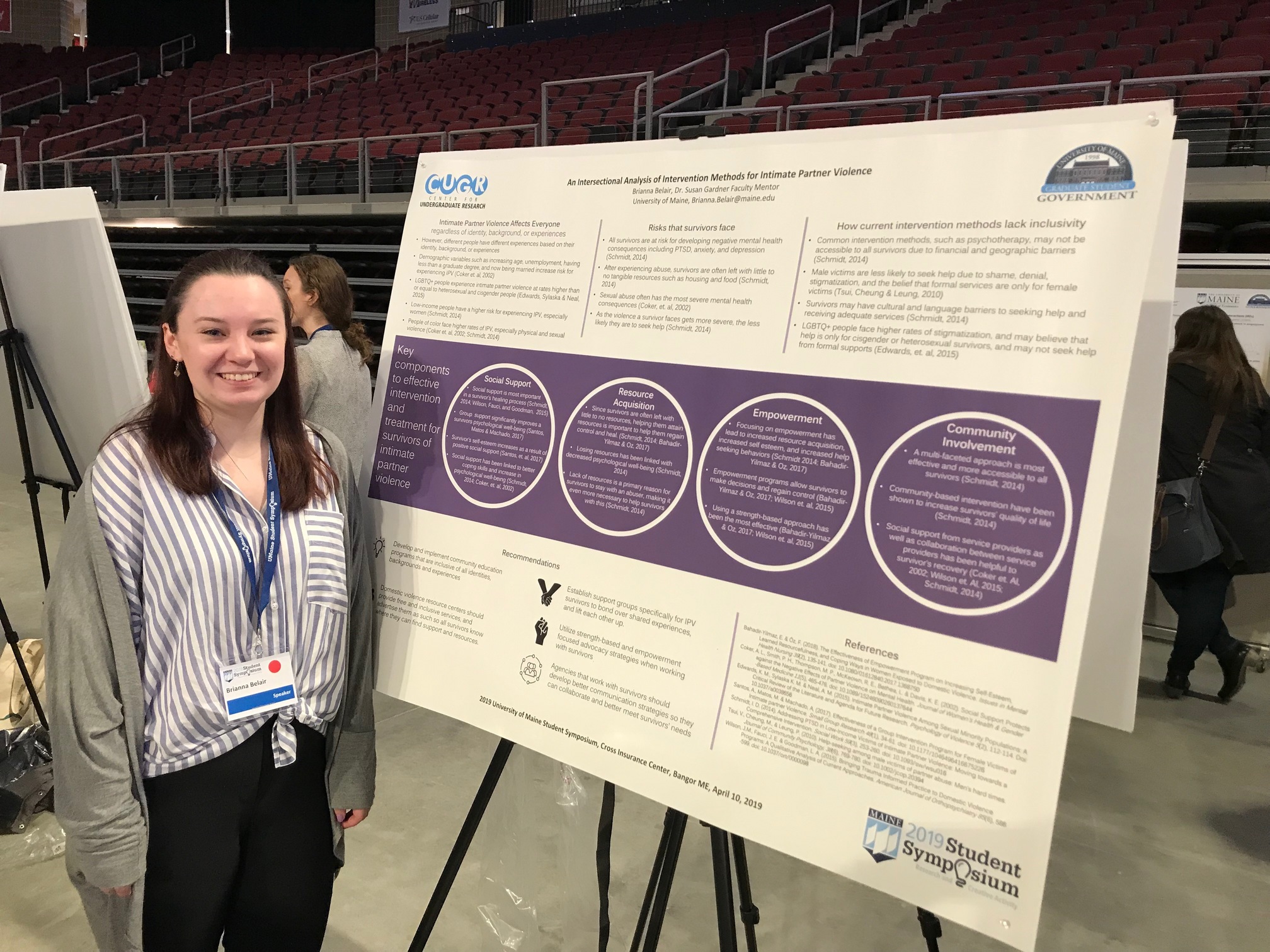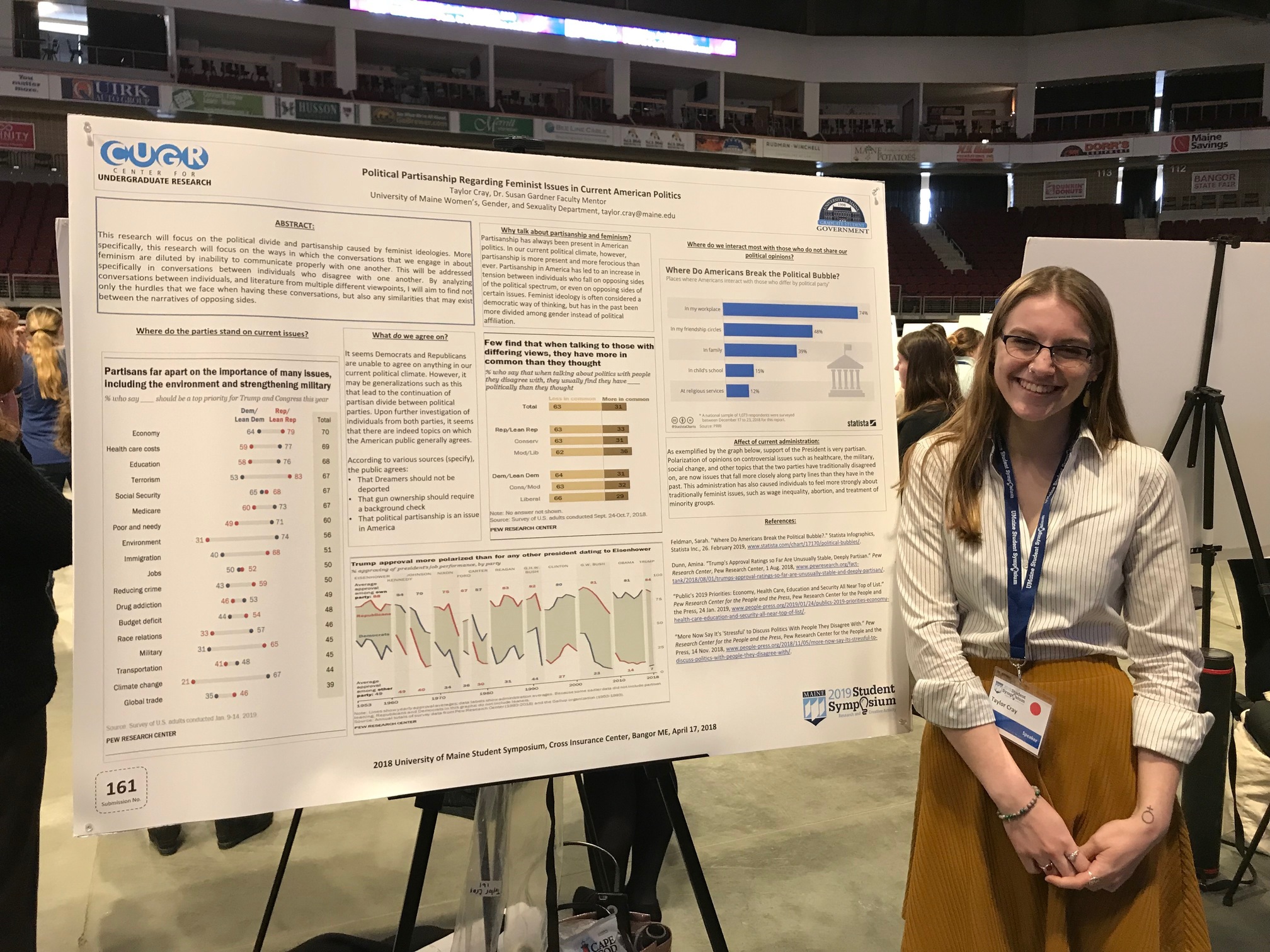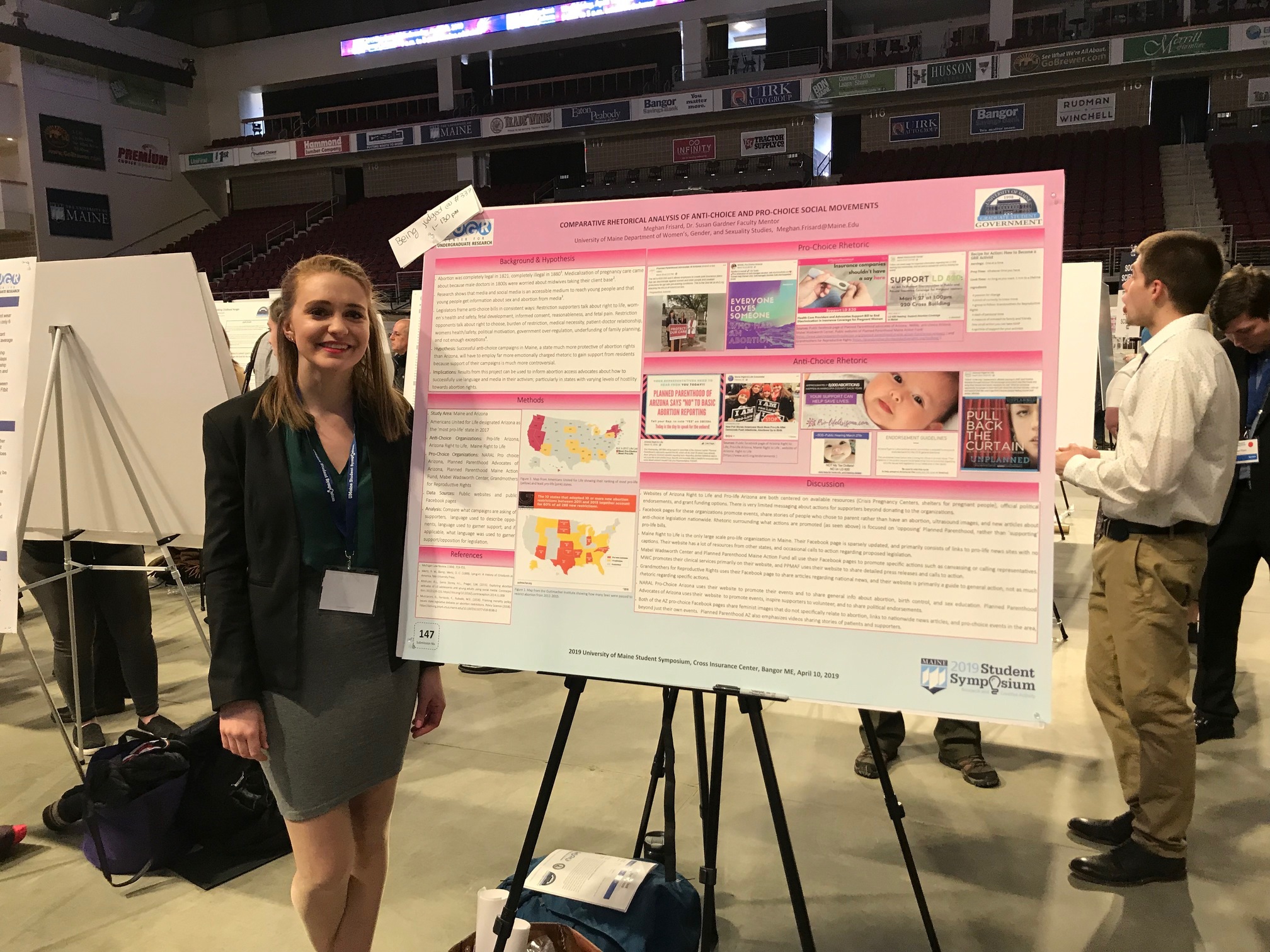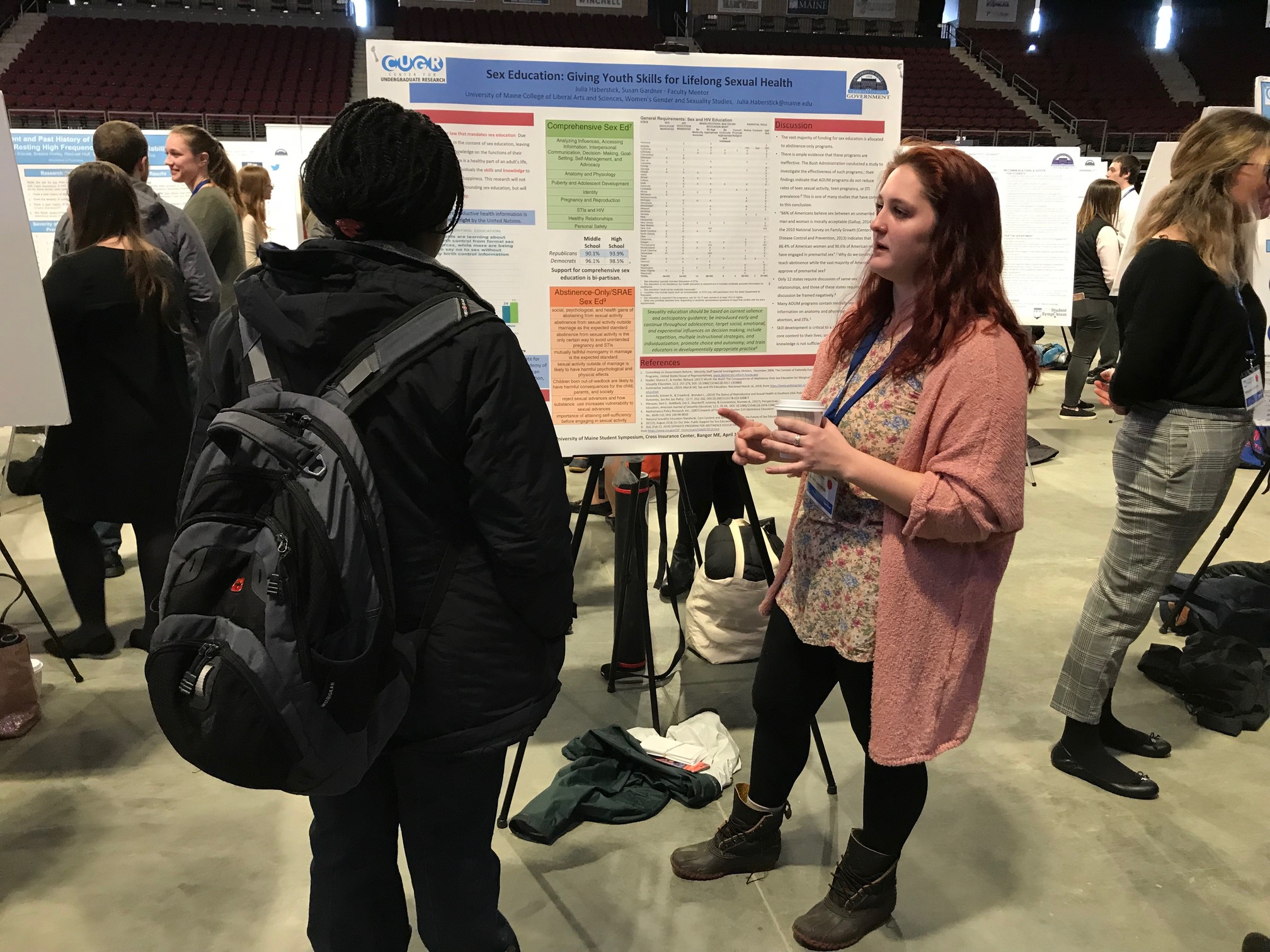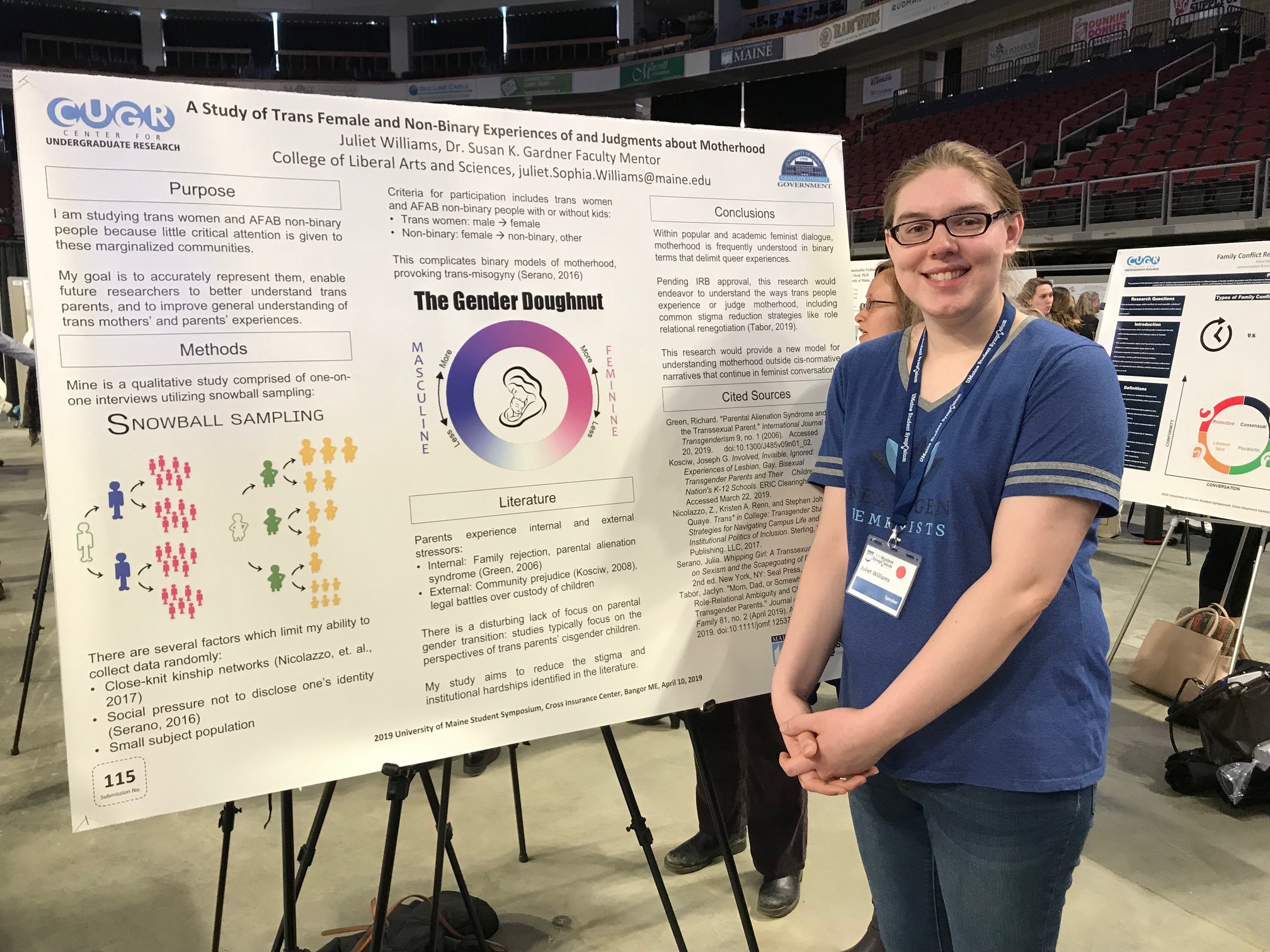Dr. Elizabeth Neiman
Dr. Elizabeth Neiman is an Associate Professor of WGS and English. Between 1790 and 1820, William Lane’s Minerva Press published and circulated an unprecedented number of new novels, many of them by women authors. In recent years Minerva has been written back into Romantic-era literary history (see work by Ina Ferris, Emma Clery, Deirdre Lynch, Michael Gamer, Mathew Grenby, and Anthony Mandal). Particular attention has been paid to Minerva’s exemplary role in inciting Romantic “anxiety,” Lucy Newlyn’s term for the period response to popular print culture. My book argues that Romantic “anxiety” is better conceptualized as an “exchange,” a dynamic interrelationship between Minerva novels and Romantic-era politics and poetics. Minerva’s derivative themes and otherwise “borrowed” material (e.g. character types, fashionable terms and features, such as poetry epigraphs) draw its authors into a shared circuit of production with writers now regarded as canonical, but then competitors for a rapidly expanding readership. I pose two central arguments. First, Minerva novelists react creatively to an increasingly stratified literary market by borrowing the rhetoric of “prolific” print culture (which includes references to the sublime and original genius as well as to circulating-library “trash”) to fashion an actively collaborative rather than passively derivative model of authorship. This model enables authors to contribute to debates over woman’s nature, the social order, and the literary market. Second, Minerva’s authorial model reverberates in Romantic poetics—and in particular, in Percy Shelley’s portrayal of the poet in A Defence of Poetry. Even as Shelley continues the cultural work (begun most prominently by Wordsworth in his preface to Lyrical Ballads) that elevates the poet above all other writers, Shelley’s vision of the ideal poet (impassioned; inspired; prophetic) reflects a deeply social understanding of how the poet comes to compose his verse.
Laura Cowan

Laura Cowan, Director of WGS and Professor of English, has a Ph.D. in English literature, with a specialty in Modernist Literature. Her first book was on T. S. Eliot. Her most recent book, Rebecca West’s Subversive Use of Hybrid Genres (Bloomsbury, 2015), brings new insights from genre theory to bear on the work of the modernist journalist and novelist Rebecca West (1892-1983). This study explores how West’s use of and combinations of multiple genres (often in single works) was informed and furthered by her subversive feminist goals. For example, Rebecca West revises patriarchal epic conventions such as individualism and hierarchy in her work Black Lamb and Grey Falcon by replacing the traditional male, individual hero with a group of peasants. A recent article “History of the National Poetry Foundation” for Becoming Modern: The Transformation of the University of Maine, 1965-2017, edited by Howard Segal and Deborah Rogers, testifies to the University of Maine’s crucial role in shaping Modernist studies of literature in America and abroad. Her review of John R. Gillis’s The Human Shore: Seacoasts in History (University of Chicago Press, 2012) for Maine History is part of her long interest in sustainability. She was the faculty sponsor of the journal SPIRE, the first University of Maine online Environmental Journal, which was founded in 2017. She is currently drawing on the modernist and feminist strands of research on Rebecca West to examine Rachel Carson’s political and cultural critiques in her “sea books.” Rachel Carson’s refusal to have her nonfiction work The Edge of the Sea conform to the taxonomic and cataloging conventions of naturalist guidebooks insists on the connections between living organisms instead of their differences to subvert worldviews which see humans and animals in conflict. Contemporary environmental problems give urgency to my examination of the subversive “land/sea ethics” implicit in Carson’s works.
Nancy M. Lewis

Nancy Lewis, adjunct faculty for WGS and Fogler Library’s Head of Reference & Information Literacy, has recently published a review of Jack Halberstam’s Trans*: A quick and quirky account of gender variability in the journal Resources for Gender and Women’s Studies: A Feminist Review. RGWS is the first to publish this review.
Lewis, N.M. (2019). Open to possibilities: Gender variability and the importance of the asterisk. [Review of the book Trans*: A quick and quirky account of gender variability, by J. Halberstam]. Resources for Gender and Women’s Studies, 40(1), 7.
Dr. Mazie Hough, Professor Emeritus

Dr. Mazie Hough is a social historian with an emphasis on women’s reproductive politics, widely construed. Her current research focuses on abortion, infanticide, and rape in Maine at the end of the 19th and beginning of the twentieth centuries. She is interested in how a growing state involvement in the investigation and prosecution of these crimes had a particular impact on rural women. She is also the Maine coordinator for a national data base/web site of suffragists and would welcome anyone who is interested in writing a biography of a Maine woman or who knows of a Maine woman suffragist to get in touch with her.



